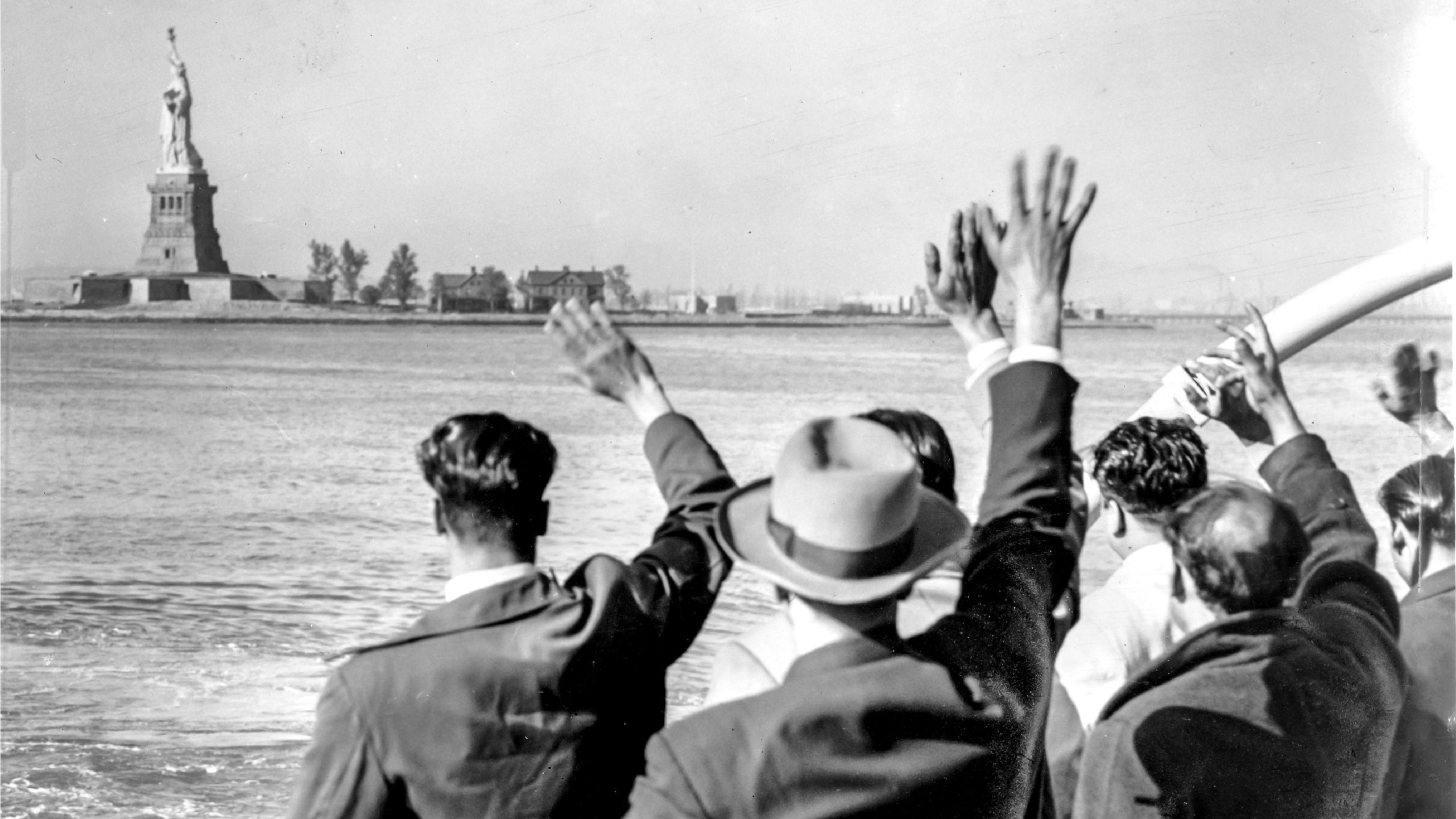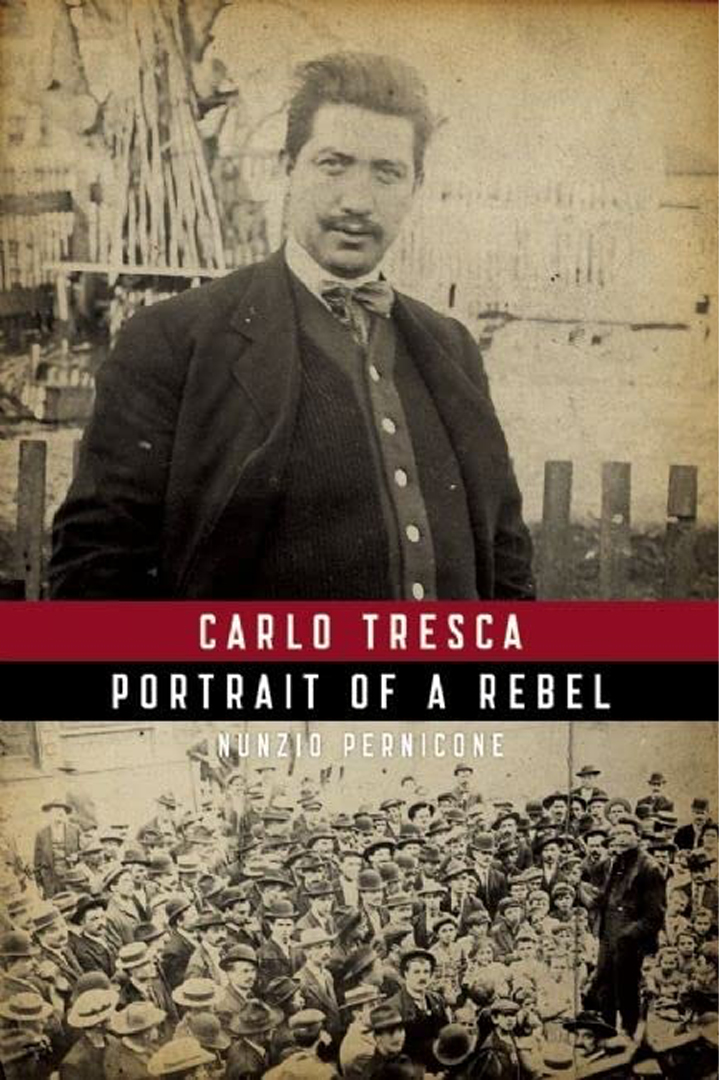There are countless fascinating insights about the history of Italian immigration to the United States, which took place mainly from 1880 to 1921, outside of the official chronicled history. The whole picture is captured in little-known details as presented in these anecdotes related to events or people that have contributed to build the Italian identity in the United States of America.
The Statue of Liberty’s Sister Was Italian
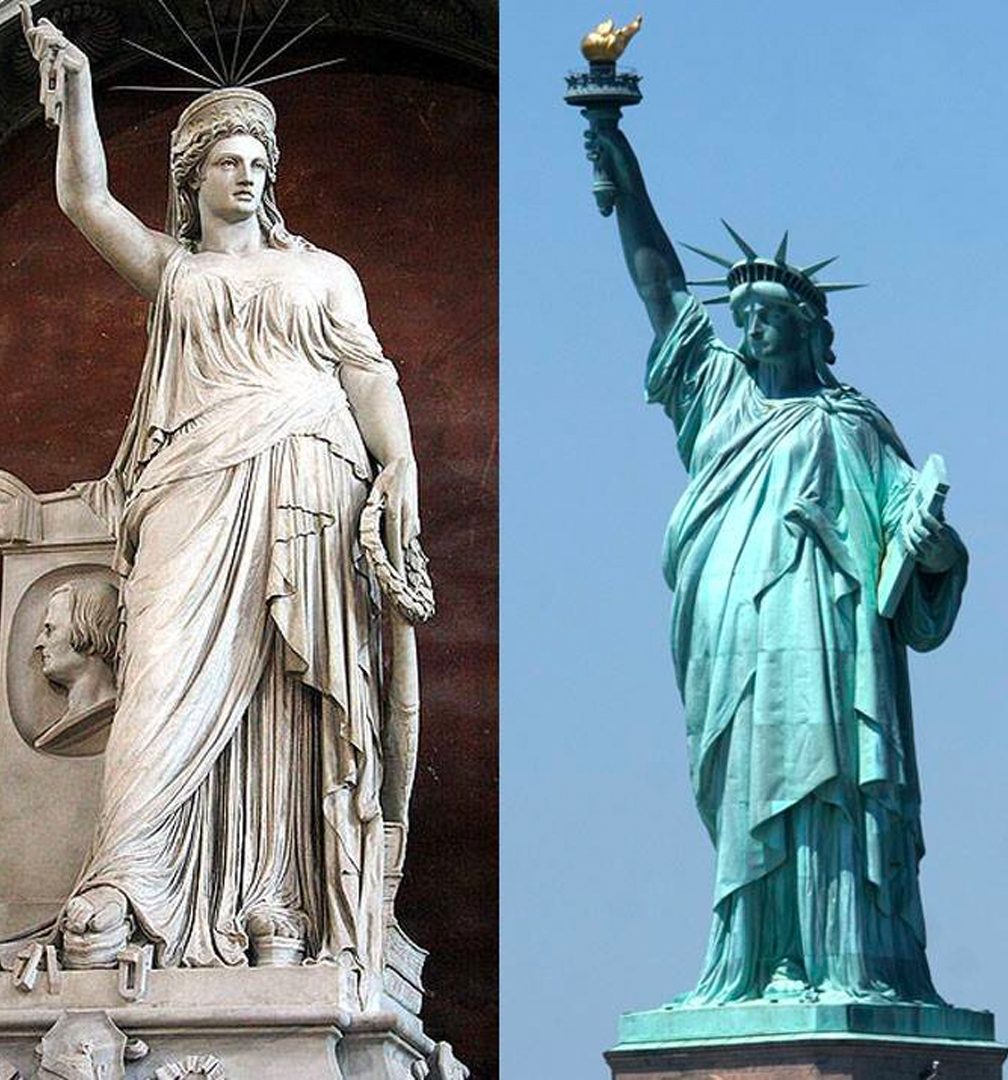
The first thing any immigrant looked upon from the deck of a ship as they arrived in New York City was the imposing Statue of Liberty on Ellis Island, donated by France and celebrating the everlasting friendship between the two nations. The inspiration behind the work has been the idea that freedom of thought sets people free themselves. While in Florence, entering the monumental Basilica of Santa Croce, you will find something that very few people usually notice: the statue that clearly inspired the creator of the U.S.A.’s iconic symbol. La Libertà della Poesia, “Freedom of Poetry”, by Italian artist Pio Fedi may better be entitled “From Florence to Ellis Island: Sisters in Liberty”. Consider this - the statue was sculpted in honor of the poet and playwright Giovanni B. Niccolini and inaugurated in 1883 in Santa Croce, while the “sister” work of the French sculptor Auguste Bartholdi was completed in 1886. Many believe the Statue of Liberty was inspired by its Italian “twin.” We invite you to dwell on the incredible similarities of the two works: the rays that emanate from the tiaras, the drapery of the clothes, the posture of the arms, the same gaze lost in the infinite.
Famous Italian Immigrants
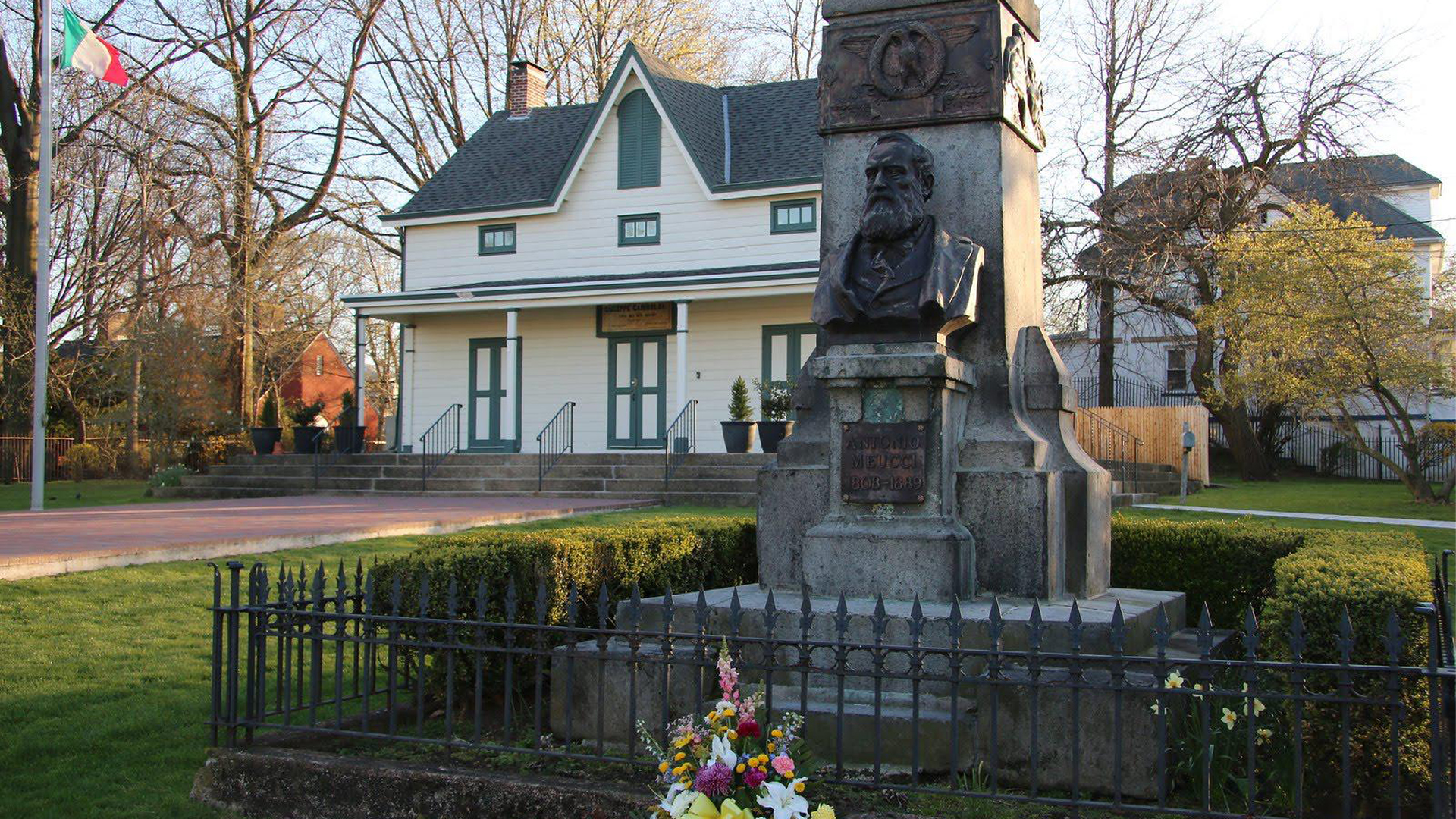
(Photo credit: cmsphoto.ww-cdn.com)
Giuseppe Garibaldi is often considered Italy’s most famous immigrant to New York, arriving in 1850 with the first wave of immigration. Another excellent Italian living in New York City, Florentine native and true inventor of the telephone Antonio Meucci, hosted the soon-to-be Hero of Two Worlds in his Staten Island home. Garibaldi was already a celebrity for his military exploits but, nevertheless, his humble beginnings in his new country found him working in a foundry for a year. His experience in America allowed him to make many friends who later financed the 1860 Italian military campaign known as the Expedition of the Thousand, the program for the Unification of Italy. We can’t forget Lorenzo Da Ponte, the librettist of some of Mozart’s best operas, who settled in New York City and taught Italian at Columbia University in the early 1800s. Last but not least, in 1886 Italian immigrant Raffaello Petri founded the Petri Wine in San Francisco, a family-run company that in 1953 happened to be the largest domestic producer of wine in the United States.
Escaping Poverty and Uncertainty
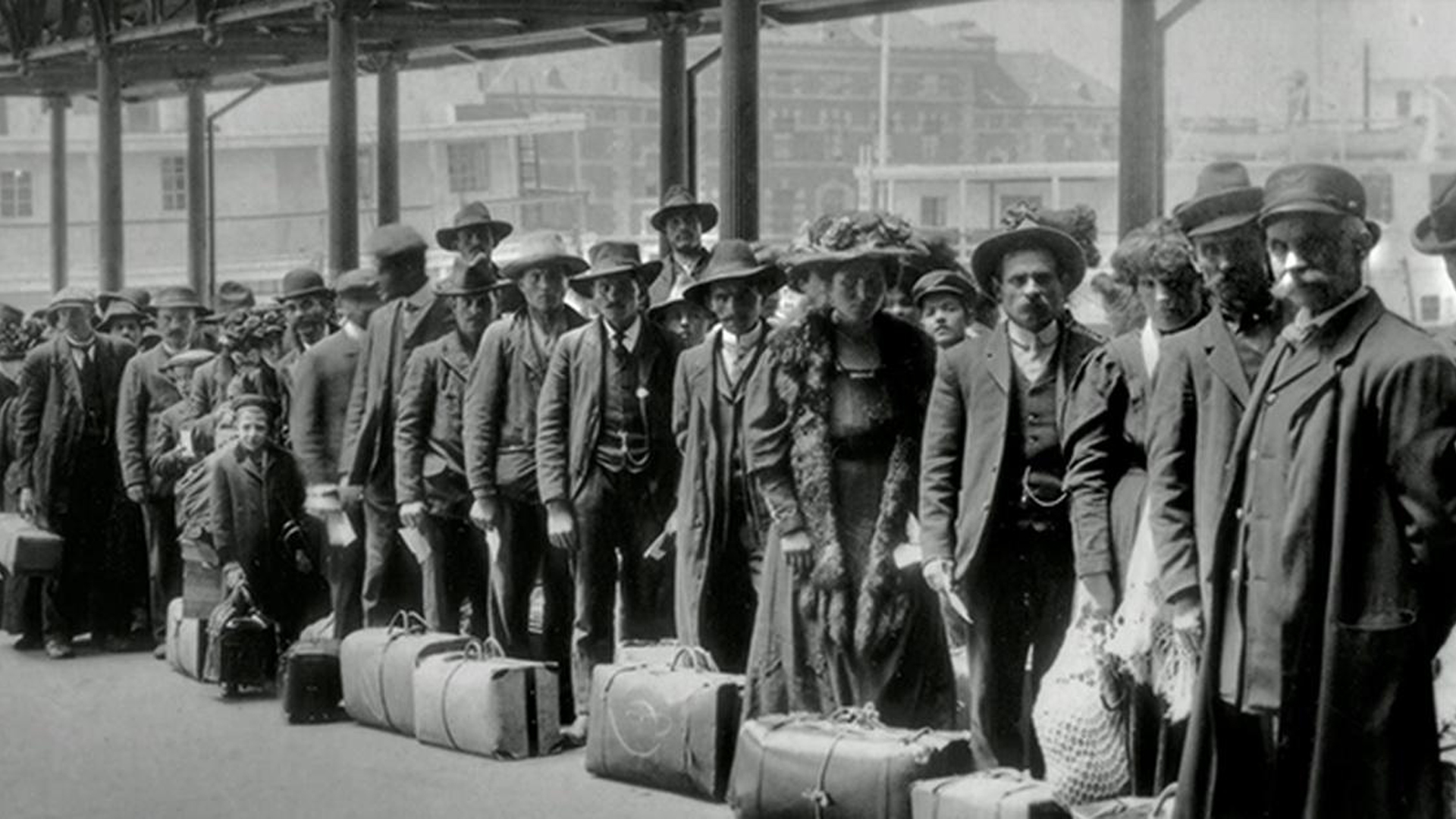
(Photo credit: image.pbs.com)
The Unification of Italy, with the consequent repressive policies that worsened living conditions for farmers and other rural people and motivated anti-government “brigands”, who were eventually massacred by the new government, propelled Italian immigration to the U.S. in the late 1800s. Expats came mainly from the Southern regions, impoverished by the new political situation. Hundreds of thousands of people were forced to leave their homeland.
Influence on Trade Unions
Carlo Tresca was an anarchist born in Sulmona, Abruzzo, who arrived in the United States in 1904 to escape political condemnations. Among the leaders of workers’ protests, Tresca, a journalist and playwright, realized that the Italian immigrants in America were those most in need of a trade union.
For his entire life he had tenaciously opposed fascism, communism, and even the Mafia, but his socialist ideas made him unpopular with American law enforcement. He was killed in 1943 while walking on Fifth Avenue by order of Mafia godfather Vito Genovese.
Prominent Italian-American Politicians
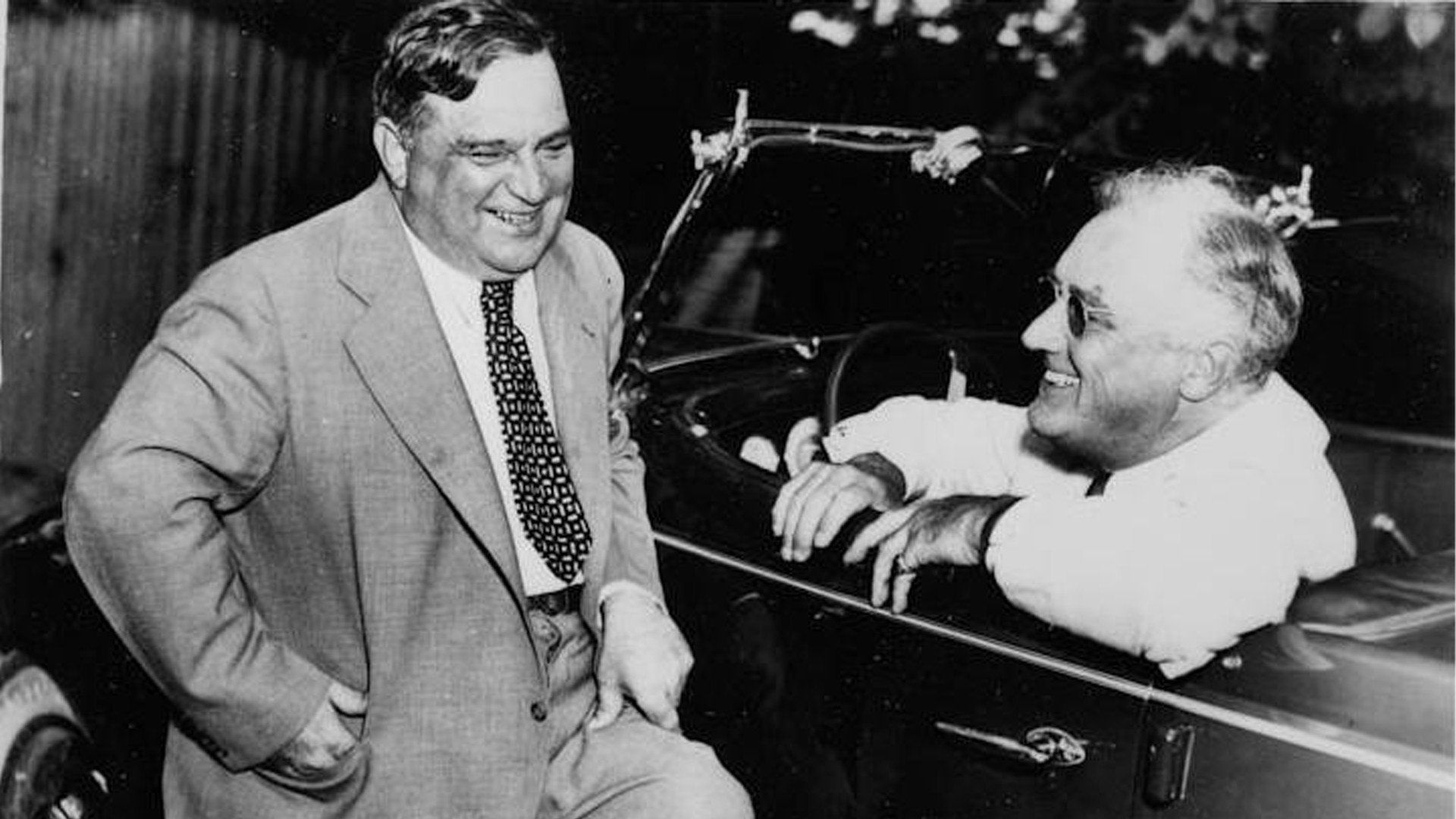
(Photo credit: WNYC.ORG)
According to a survey, Fiorello La Guardia was the most beloved New York City mayor of all time, with an airport named after him as one expression of that appreciation. Son of a musician from Cerignola, Apulia, in 1916 he became the first Italian-American elected to the U.S. Congress. As mayor of New York City he earned a reputation as an honest and capable administrator and worked closely with President Franklin D. Roosevelt to get the country through the Great Depression with the New Deal. He fought the Mafia, was among the first American politicians to stand against Fascism and Nazism, and built schools, parks, and public housing. Police officer Frank Serpico, son of emigrants from Marigliano, Naples, became an icon in the 1970s fighting New York City’s police corruption.
Rudolph “Rudy” Giuliani, grandson of Italian immigrants, served as the U.S. Attorney for the Southern District of New York where he famously prosecuted New York City Mafia bosses and later served two terms as the city’s mayor. Mario Cuomo, whose parents emigrated from Tramonti and Sicily, was elected governor of New York for three terms from 1983 to 1994. His progressive legacy includes being considered one of the best political speechmakers in history. In 2013, New York elected its fourth Italian-American mayor, Bill De Blasio, whose maternal grandparents emigrated from Matera, Basilicata, in southern Italy. As an adult he adopted his mother’s last name, and his work as governor included improving schools for children of low-income families and increasing affordable housing
Barbara Benzoni
Barbara Benzoni was born in Milan and lives between Rome and Tuscany. She is devoted to USA, the land of courage and innovation. She’s Peter's super-lucky mum and Ale's wife. Cinema, art, good food and only beautiful things are the themes of her existence. With a degree in Italian literature and a Masters in Sports Management she can both enjoys books and basketball matches. In 25 years she has been organizing sport events all over the world and she’s been lucky enough to meet the greatest champs ever. Curiosity in everyday life and people are her drivers. Her personal icon is Mohammed Ali : "It's not bragging if you can back it up".

